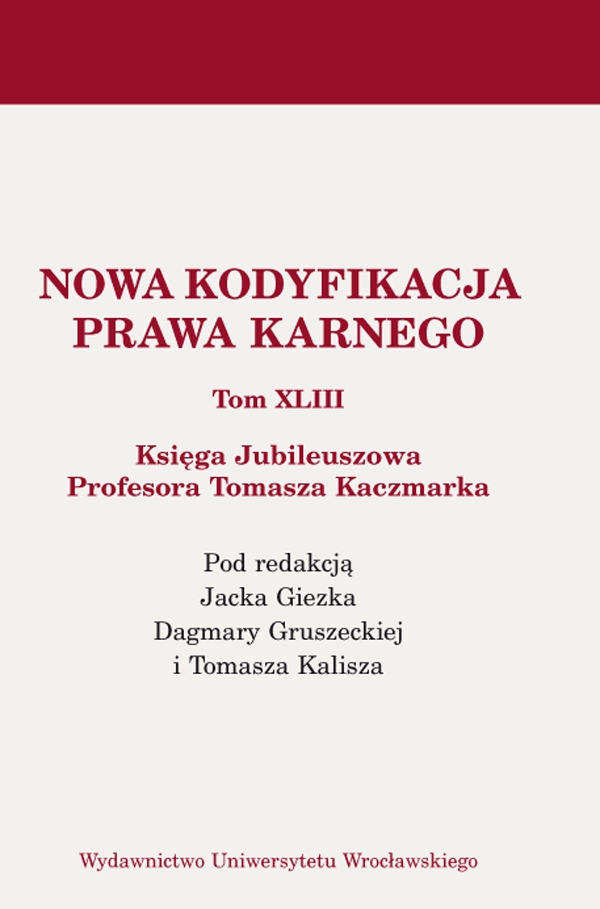

Artykuły

The importance of the fundamental principles of punishment in criminal policy — remarks against a background of causes and results of “mass incarceration” in the United States
In the last century, in the United States, there was a significant change in the paradigms of punishment. In the 1970s the ideology of rehabilitation collapsed and reforms, which aimed at restoring justice in punishment and reduction of the prison population, were initiated. In the next decade, the movement aiming at liberal reforms lost the social and political support and was replaced with the repressive criminal policy. At the same time, a rapid increase in the prison population started which has been referred to in the criminological literature as the phenomenon of mass incarceration. After four decades of continuous growth in the number of persons deprived of their liberty there is no doubt that the social and financial consequences of a repressive system of punishment proved to be dramatic. For this reason, issues concerning the restoration of justice and rationality in punishment have again been discussed in the United States.
Many European countries also experienced the “punitive turn” in the criminal policy at the end of the 20th century, although its scale was incomparable with what happened in the United States. It does not mean, however, that American discussions on the philosophy of punishment and criminal policy are irrelevant for Europe. Multidimensional negative effects of the American policy of mass incarceration indicate the dangers resulting from ignoring the basic principles of punishment that protect against abuses of the state’s power to punish. Additionally, they encourage a serious discussion about the integration of punishment theories with the empirical knowledge on the results of sentencing and sentence enforcement.